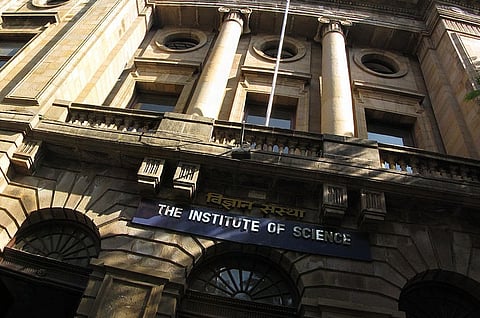

“I always wanted to be a writer. A writer of science, like Carl Sagan. At last, this is the only letter I am getting to write.
I loved Science, Stars, Nature, but then I loved people without knowing that people have long since divorced from nature. Our feelings are second handed. Our love is constructed. Our beliefs colored. Our originality valid through artificial art. It has become truly difficult to love without getting hurt.”
Even as he wrote his final words, Rohith Vemula could not avoid mentioning science. He was fighting the battle against institutional discrimination through student politics, but evidently, at the heart of it all was his love for science. But for Vemula, and several others who have similarly perished, it is their passion for science which cost them their lives. Across universities in India, for Dalits to pursue scholarship in scientific disciplines is an extremely challenging task, thanks to pervasive discrimination, lack of guidance and absence of companionship.
Activists say that in across science departments, most professors are from the upper castes, due to which Dalit students face rampant discrimination. And with few Dalit students who choose science, students have few friends for help.
Hyderabad Central University (HCU) seems to be notorious on this account. On February 24, 2008, Senthil Kumar, who was pursuing his PhD in Physics at HCU, committed suicide in his hostel room. At first, University authorities claimed that he died of a heart attack, but when his post-mortem revealed that he died of poisoning, the issue blew up. There was a political furore, following which a fact finding committee was set up under Professor Vinod Pavarala.
Pavarala’s findings were shocking, and showed a thriving culture of caste-discrimination in the School of Science. In Senthil’s batch, four including him were not assigned supervisors. All of them were from reserved categories. Under pressure to perform and with no guidance, Senthi failed in one of the courses, due to which he stopped receiving his fellowship stipend. Hailing from a poor family of pig-breeders in rural Tamil Nadu, Senthil succumbed to the pressure and killed himself. Two others who were not given supervisors left the program.

Rohith Vemula and Senthil Kumar, two science students from HCU who have committed suicide in the past decade.
Pavarala’s report also stated that "it is a fact that most of the students affected by the inconsistencies and ambiguities in procedures were SC/ST students" and more importantly, that "all the physics students that this committee could meet have reported their sense that the School was acting against the interests of the SC/ST students". The discrimination was intentional, students said.
Writing in EPW, the Senthilkumar Solidarity Committee summed up the reasons for his suicide, and one of them was “the exclusivity of pure ‘science’”.
Speaking to The Hindu in 2008, Senthil’s friend Thennarusu of HCU also said that the discrimination was “very high” in science branches, and that Dalit students had to bear bias and prejudices. Getting guides was very tough and no one would come forward to accept them as their wards, he had said.
And it is not just Rohith or Senthil, you can read here about Rejani Anand and Ajay Sree Chandra.
After Senthi’s death, university rules were changed to help Dalit students continue receiving thier fellowship stipends even if they have backlogs, but the discrimination still persists.
Thanks to the boom in private education institutions, the supply of seats in engineering colleges was high enough for Dalit students to get admitted. Due to social movements which have enabled the weaker sections to some extent, the number of professors and students in humanities and social science has increased in the past decades. But the gates are shut tight in pure sciences, say academicians.
“There is a long history of discrimination against Dalit students in science departments. There is a serious attempt to chase them out. We have seen cases in JNU, DU and AIIMS, but in HCU the discrimination is daring and blatant,” says C Lakshmanan, Associate Professor of Madras Institute of Development Studies. You can read Caravan's report about a student suicide in AIIMS here.
In 2008, among those who took up Senthil’s cause was then MLA from Dalit-party VCK of Tamil Nadu, D Ravikumar. It was at his insistence that a committee was formed to look into his death and the discrimination in the department.
“The support of the guide is very important in science departments for the use of labs and guidance through dissertation. And there are very few Dalit professors or HODs, so these students find it very difficult to survive the course because the professors may not help them,” says Ravikumar, recounting his learning from the 2008 tragedy.
The problem is even more difficult to solve in Central Universities since they are controlled by the Union government, thereby reducing immediate accountability, he adds. Further, students from other states do not find support due to parochial divisions.
Parthasarathi Mutthukkaruppan, Assistant Professor at EFLU in Hyderabad, points out that on the other hand, several Dalit students have been able to do well abroad. “I know of students who have been rusticated in HCU, but have got scholarships in American universities and done very well. This clearly points to the discrimination in science departments in Indian universities,” he says, adding that people from very few communities dominate the science streams in India.
What can be the solution to this? “I will not say reservations,” says Ravikumar, “Dalits need fair reservation in University senates and managements. But more important is awareness about classroom discrimination. Unless we train teachers to be socially sensitive, the situation will persist.